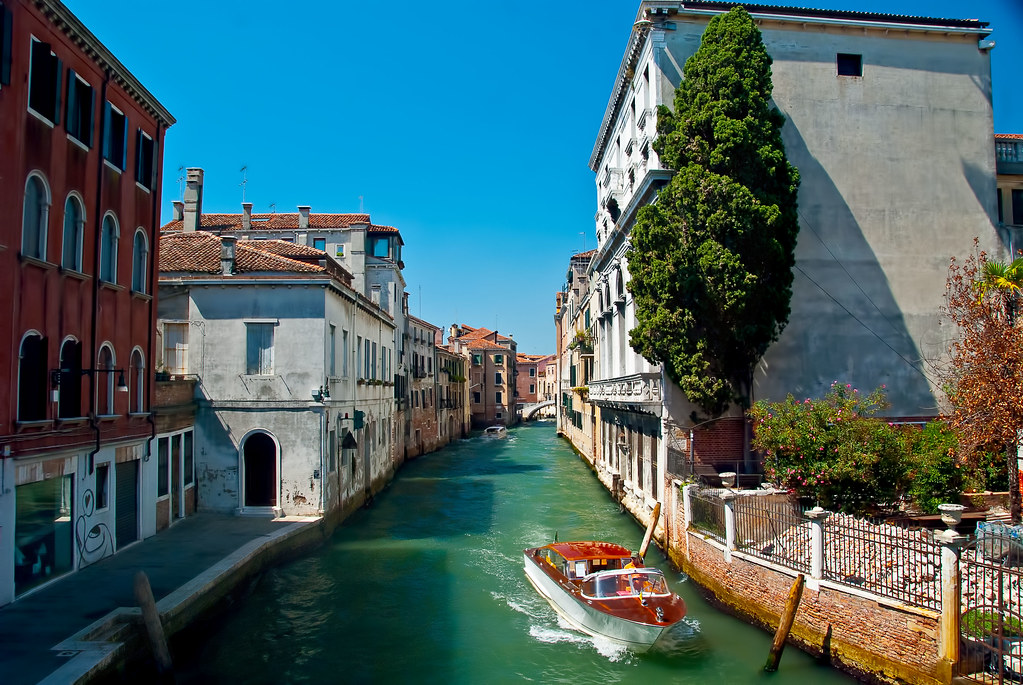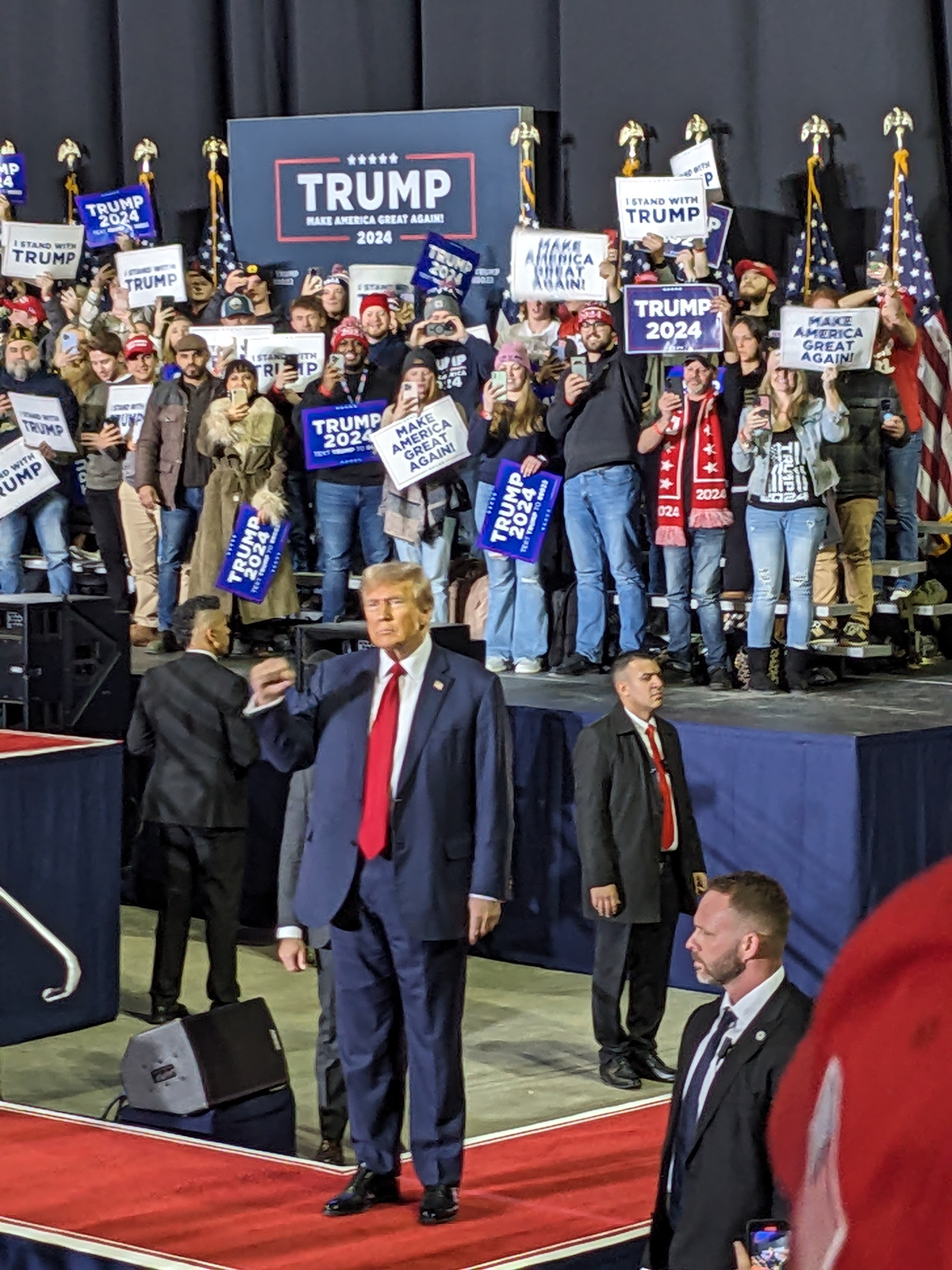Recently, I had occasion to reread Charles Tilly's article "Invisible Elbow." Tilly's basic (oversimplified) thesis is that the "invisible hand" metaphor presumes far too much precision and fine-motor coordination for how social change happens, and misses the degree to which much of human action is a series of halting, try-your-best efforts that have a ton of unanticipated consequences and plenty of errors, followed by error and course corrections as we try to feel our way through to a satisfactory result. As far as the metaphor goes, instead of a delicate hand guiding change, things proceed more like trying to open a screen door with your elbow while holding a full bag of groceries. It's directional, it often works, but it's very imprecise and awkward and sometimes you miss the door and lose the groceries and everything splatters onto the floor.
I was thinking about this idea in relation to the campus protests wracking universities across the country. We've gone in the usual circles of "are they counterproductive", and my standard line on that whether a protest is "productive" depends on what it's trying to produce. But to give a bit more color, it seems clear to me that the protests are producing some things -- not always exactly what the protesters want, but also not necessarily orthogonal to their demands or desires either. It's not a hand, and it's certainly not invisible, but there is a visible elbow that's part of a blunt, awkward, jostling process that is creating change. That change is sometimes good, sometimes bad, sometimes in favor of the protesters, sometimes against, but one can't say the protests are not exhibiting an impact.
For example, one complaint I've heard from the protesting camp is that they're frustrated the media is focused on them rather than on what's happening now in Gaza. I'm not especially sympathetic to that complaint, but I also think they're underselling themselves -- I think the protests are actually doing a bang-up job of keeping the Israel/Gaza war forefront in American's minds at a time when it was starting to ebb a little bit. My template here was Russia's invasion of Ukraine, which riveted the nation's eyes and sparked intense activism ... for a few months. Eventually, though, it became background news as nothing really changed -- not that Russia started behaving better, but it stopped being new and fresh and started being part of the foreign policy normal. The Israel/Gaza war seemed like it was inching toward a similar status, but the campus protests (and the hyper-aggressive Columbia-style response to them) has warded that off for now. I think that has to be seen as a success for the protesters in the aggregate.
At the micro level, the "productivity" of the protests is going to depend a lot on local facts and practices. In some places, it's yielding deals to at least talk about divestment, and these deals in turn are being met with anger by Jewish stakeholder groups who are now asking "do we have to occupy a building to be heard?" My prediction on these meetings is that they will not result in termination of academic exchange programs with Israeli universities (perhaps excepting some symbolic carveouts where entire slates of programs were set to be phased out anyway -- I have to think that's what's happening here). There might be new rules on divesting from weapons manufacturers more broadly that are not structured as Israel-only one-offs but reflect some generally-enforceable decision not to invest in the sector.
It's also likely that in other quadrants the protests might generate broader-based backlash. Protesters appeared to have trashed the library at Portland State University following their occupation, it's hard to imagine that will redound to their benefit. One of Columbia's constituent schools elected an Israeli student body president propelled, it seems, in significant part by backlash to the protesters. And of course, if the protests end up giving a leg up to Donald Trump in the 2024 election -- based on a mix of "fracturing the Democratic coalition" and "independent voters just have an instinctive aversion to the sense of disorder" -- that, too, is a consequence.
On the whole, the protests are a "they" and not an "it" -- they are diverse in methods, tactics, goals, and productivity. They'll accomplish some things and fail to accomplish others, some of what they do is intended and some is unanticipated. Even if there is a "master plan", it's not going to come to fruition -- but that doesn't mean they're moot.
And the final thing I'll say is this: as someone who is generally averse to protest (and always has been -- say what you will, but for me there's no "well back in my day...." aspect to this), if you're unhappy at the conclusion that protesters are even in part driving the forces of social change either on campus or in the world as a whole, then it's incumbent on you to reflect on what other social forces might have filled the void and why they didn't. There's plenty that the protesters say or demand that I strongly disagree with. But I do think it's a positive that the institutions of American government and society are starting to treat Palestinian lives and rights as an integral part of the calculus we use to assess our policy in the Middle East, and to be blunt it's hard for me to say with a straight face that would have happened absent these sort of protest initiatives. If one doesn't like the protesters claiming credit for that shift, then one should have insisted on incorporating those interests into the calculus without the protests having been necessary. There has been a complacency (at best) in Congress for many, many years surrounding Palestinians rights and interests, and it was inevitable that void was going to be filled. If you don't like who is filling it now, ask yourself why the domain had been left empty for so long.







.jpg)
.jpg)
.jpg)
.jpg)
%20large.jpg)

